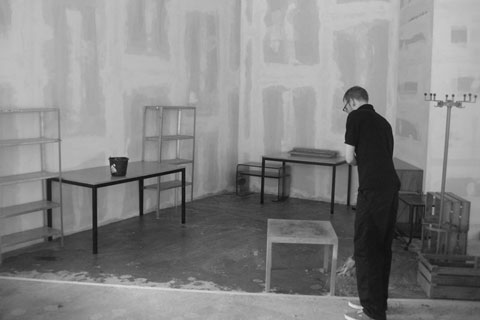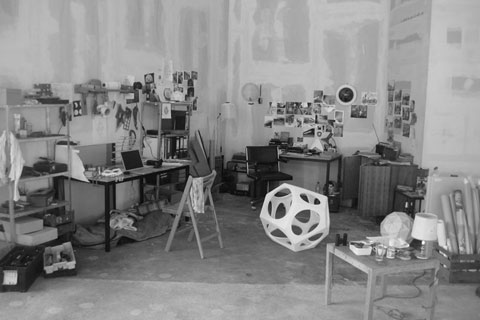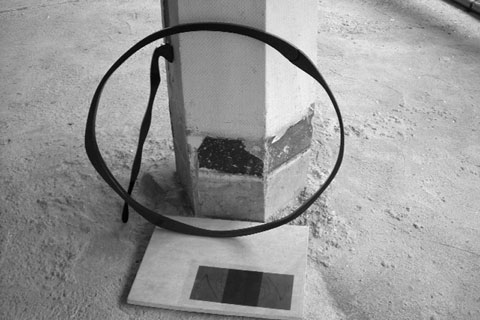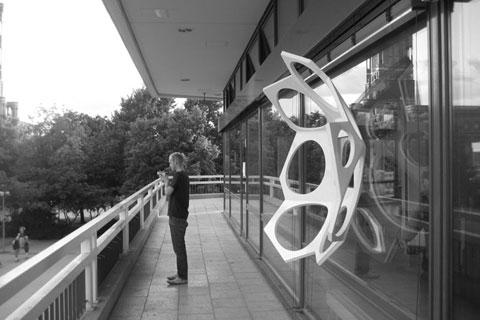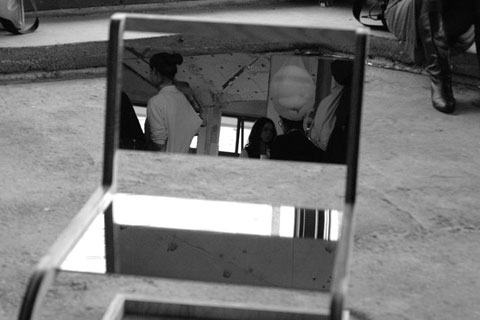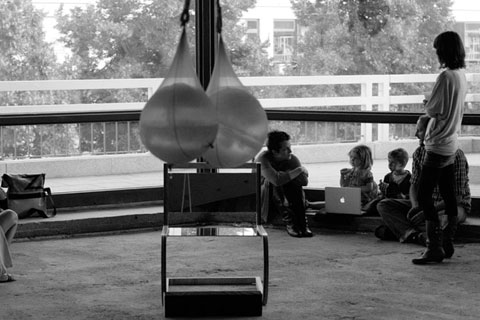
Case 2: have balls [ECCENTRIC]
July 29, 2010, Splace | click on the image above to download the publication
Case 2 by Luis Berríos-Negrón with Morgan Belenguer, Mendel Heit, Vladimir Karaleev, Miodrag Kuč, The Product, TRACKnFIELD, urbikon, Leah Whitman-Salkin, Sarah Witt.
With additional contributions from Pia Marais, Hans-Jörg Rheinberger, and Gabriel Shalom.
image (top): 16 frequency alternate spheres computer graphics from program by Joe Clinton from Domebook 2 (Bolinas: Pacific Domes, 1971)
photos by Sabine Schulz Blank, Lola Meyer, Miodrag Kuc, Track n Field, and Luis Berríos-Negrón
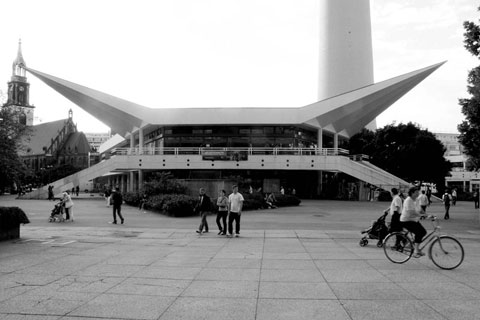
...have balls is in reality not the title of this iteration of The Anxious Prop. And Berlin has plenty of them: the ballsy phallus on Teufelsberg, the Carl Zeiss Planetarium, tiny ones in Templehof, and of course the mother of them all, the Fernsehturm—all state apparatus dating from before 1989. The title of this exposition is less a testicular, paternalistic notion; rather it is more attune to the dismantling of it. It is a set of situations with a common disposition towards the affirmation of public space, wherever that may be.
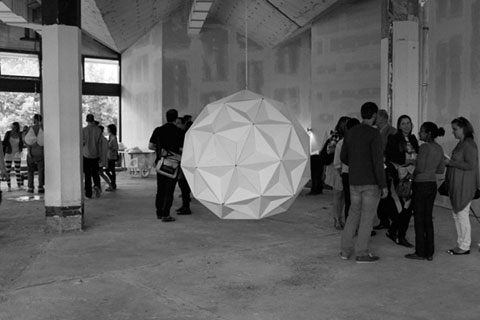
Instead of turning into the persistent longing for a physical public space, we turn to rely on other models, fictional models of access to that last spherical bastion of publicity, somewhere between the material and mental space. Perhaps it is in that unattainable past-space where Alfred Döblin's Franz Biberkopf found solace in the liberating melancholy and degradation of the street; similarly in that four-dimensional view of present-planet Trafalmadore of Kurt Vonnegut's Billy Pilgrim; or even towards that future-kibbutz of Julio Cortázar's Horacio Oliveira, which he perpetually banged his head against. Berlin Alexanderplatz, Slaughterhouse Five, and Hopscotch depend on these literary, shapeless devices, potentially props, to shake the logic of fate in the trope of “Tätigkeit,” in the action-of-doing as an eccentric displacement: the decadent, the absurd, and the playful as access to an outside world.
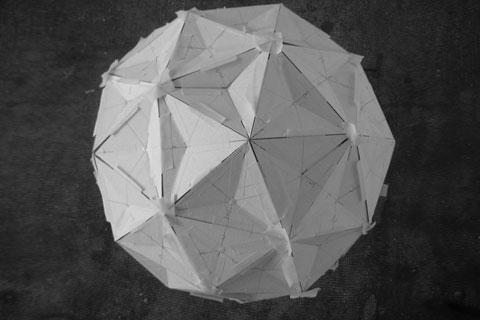
That outside world is bound by the modern fetish of the object, the nearly absolute commercialization of experience that has left us, much like Biberkopf, Pilgrim, and Oliveira, with no recourse other than the aimlessly delectable search for desire. That desire seems only to inhabit worlds outside yet inextricably within the mind of the market. These worlds are accessible in the escapist domains of that which can elude the colonization and instrumentalization of ideas. In that spirit we resort to materialize a typology, the recalcitrant prop, the one that potentially fails to function and/or acknowledge its context. The works that are before you have been formulated over the past three weeks, naive yet made as an earnest attempt to bridge this desire, this unattainable hormone always in the making, yet stubbornly resistant to being enveloped, corralled.

